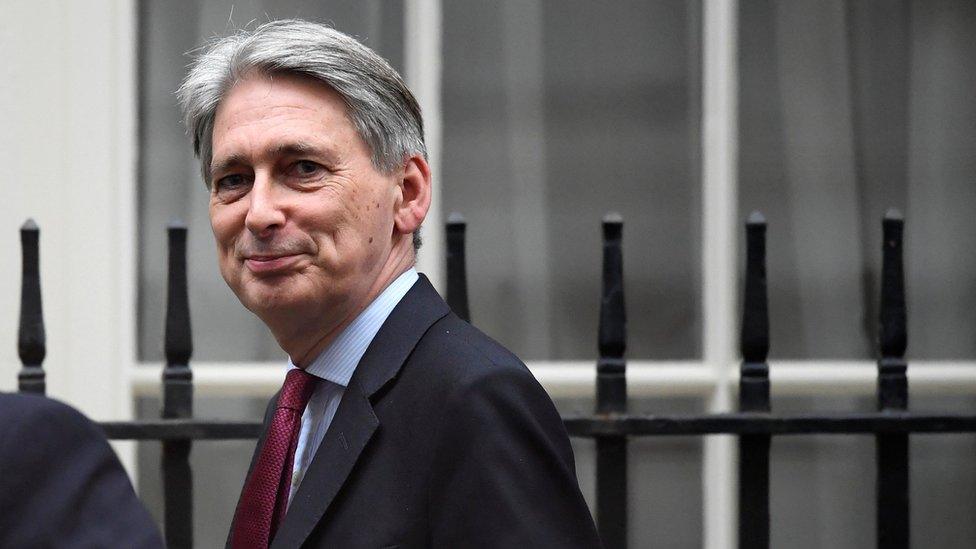Hammond’s new Budget headache
- Published

Budget Day for the Chancellor just became a little more tricky.
The announcement by the government's official economic watchdog that it expects to downgrade productivity growth over the next five years is likely to mean lower tax revenues for the government.
And lower tax revenues mean that reducing the deficit becomes harder.
Low levels of productivity are a demonstration of an economy that is not very good at creating wealth.
Or wage growth.
Falling incomes
For seven of the last 10 years, people have suffered falling real incomes, where earnings growth lags behind price increases (inflation).
UK productivity growth to remain sluggish, says OBR
This is not a comfortable position for any government to find itself and negatively affects consumer confidence and spending power - the key drivers of the UK economy.
If house price growth also continues to soften, or even turn negative in some areas like London, then consumer confidence is likely to decline further.
The analysis by the Office for Budget Responsibility comes after some more positive news on increased tax revenues had given Philip Hammond about £26bn of headroom as he approached November 22, when he will lay out the government's financial plans.
But after today's announcement, the government's target to "balance the books" by the middle of the next decade looks increasingly difficult to hit.
Sometime never
A growth downgrade could mean that the government will either have to raise taxes or find further cuts if it is to hit that fiscal target.
Or Mr Hammond could simply extend the length of time the government gives itself to hit its own Holy Grail - eliminating the deficit.
Which some might say - after repeated misses - is now looking like "sometime never".
The difficulty for Mr Hammond is that an administration without a majority finds it harder to pass difficult legislation.
Remember the U-turn the Chancellor had to execute over plans to raise taxes for the self-employed he announced in March. That was when Theresa May had a working majority.
Mr Hammond might want to change his fiscal approach but it only needs a rebellion of a handful of Conservative MPs to threaten derailment.
What are the keys to increased productivity?
They are numerous and complex - education, skills, infrastructure investment and businesses investment.
Each has faced the headwinds of austerity (public service cuts), controversy (Heathrow's extra runway, the Hinkley Point nuclear plant) and uncertainty (the Brexit referendum).
Take one example, Matthew Taylor's report on how to improve the way we work. He has provided a detailed plan for Number 10 but what are the chances of any legislation being passed, for example, on reforming zero hours contracts?
Many believe minimal as Theresa May grapples with the complexities of leaving the European Union and challenges to her authority.
An economy that is poor at producing wealth is an economy that many will see as not working for them.
The fact that employment levels are high is an important economic good. That people have jobs is the first stage of economic well-being.
But Mr Hammond knows that moving on from "jobs" to "well paid, productive jobs" is the next, tough part, of the journey.